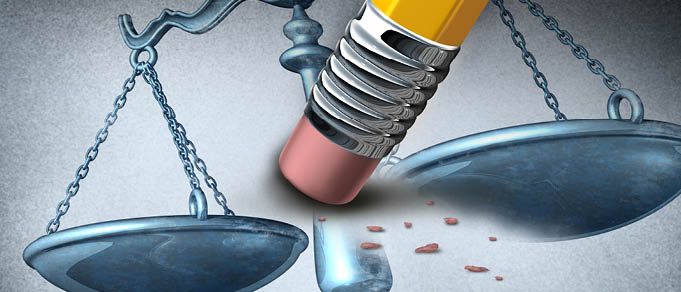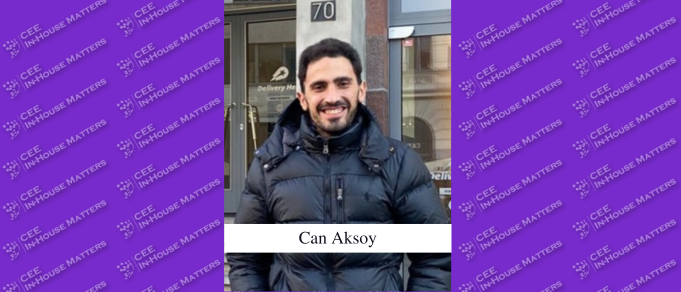The September issue of the CEE Legal Matters magazine contained an interview with a Law Firm Marketing expert who was leaving the profession, and who explained that “I became very frustrated. Working with the lawyers was difficult, while trying to maintain my dignity.” She also said that “I’m afraid I discovered that many of them are simply not very nice persons. And I’m afraid that non-fee earners are not persons that are much loved at law firms.” She said, “with more support I would have been happier, obviously,” and that “I didn’t feel I was receiving any real respect for the amount of work I was putting in.”
To explore these comments, we reached out to other Law Firm Marketing experts across CEE to get their thoughts on those expressions of frustration, with the offer of anonymity to encourage candor.
Comment One: In general, I agree with the comments [in the September issue]. I think the reason why business development has a hard time with lawyers – and vice versa – is that people working in those fields are very different. Lawyers tend to be high-achievers with often quite poor team work and people skills, the so-called “star players” who prefer to work alone, know everything best, and are always busy with “real” work (meaning client work) – as opposed to the BD managers who need to be initiators, team players, and multitaskers … and also always positive and at the lawyer’s disposal. Also, while lawyers focus mainly on cases or more short-term projects that need their immediate attention, BD pushes strategic projects that don’t have immediate results or consequences and are therefore considered inferior. Which essentially leads to respect – lawyers (perhaps like doctors) have their own professional guild and a strong belief that they can do something that nobody else can, so it is quite natural they tend to look down at other professions, especially people in “support functions” such as BD, HR, IT, assistants, etc.
My personal experience shows that it is possible to gain respect in the firm as a professional if you’re good at your job, however the lawyer’s respect towards the role of BD has to come from the partners. If the partners acknowledge BD’s importance as a key function in the organization and fully support the efforts of BD managers, the lawyers will comply eventually. However, if the partners also ignore the processes and deadlines set out by the BD manager, there is little hope for collaboration as well as results. This leaves BD managers with a feeling of frustration and unhappiness about their job.
Long story short – I guess when lawyers are constantly too busy for “whatever-it-is-that-you-are-doing” (business development and marketing), you feel that you are not a valued team member even though you may have as much (or sometimes more) experience in your area of expertise than an average lawyer has at theirs. It’s just that you’re a “non-lawyer” – a definition my colleague was shocked to hear at a recent law firm marketing conference.
Comment Two (From the Balkans): This is a tough one, especially for jurisdictions with few known Business Development specialists active on the market. Have you noticed how many (managing) partners do their own Business Development and marketing in CEE/SEE? They know something has to be done, but this something should, by all means, continue to be done by the lawyers themselves. Non-core professionals, non-fee-earners, and non-legal experts are disruptive, and ground-shaking, and comfort-zone-threatening. Nobody likes that. This is pretty understandable.
I remember law firms from before blackberries and smartphones, and from before WhatsApp-ing with your clients on a daily/hourly basis. There were lawyers who had a hard time accepting these new technologies. Those lawyers are out of the top-tier game now. Organized Business Development work is leaning towards being independent from the core legal profession – it is the new blackberry and the new smartphone. It changes the industry for the better, but it’s an acquired taste. Only the lawyers that have a refined taste in people and business management are and will be able to play along.
Comment Three (from External Business Development Consultant): Well, I’m in an interesting position, since I have worked both inside and outside of law firms in recent years.
When I was at [firm name redacted] it was a bit unique because I had a law degree, and that was one of the key elements that helped me to get that job. I was closer to the lawyers’ profession than a regular marketing person. Lawyers have a special thing with fellow lawyers – even if you are not an active lawyer or attorney – and not with anybody else. And sure, lawyers have some of the biggest egos in the world (like doctors, I assume), and not everybody fits in a law firm. You rarely get positive feedback and you can’t make the smallest mistake. But I think support staff is treated better than junior lawyers … both in terms of working hours or yelling.
Yes, lawyers are under a lot of pressure and deadlines, but it all comes down to personalities. Some of them are good people with decent management skills, and some lack these. There are good people and bad people everywhere. Not everybody should lead people – but again, this happens in every work environment.
I did not feel that they looked down on the employees more than in other work environments. Hierarchy is everywhere, and to be honest, most managers act like jerks. Sure, most of the lawyers think that their work is more valuable than that of non-fee-earners, but I felt like they were all aware that any office would go up in flames in hours without the non-lawyer staff.
They looked at me more as a PR guy than as a former lawyer who took a detour – but I got respect from most of the lawyers, probably because I worked for it and I delivered.
Since I work for several law firms now, I feel the same and I see the same. I’m respected on a management level, but not that much by the lawyers and junior lawyers. The reason is probably that they don’t fully understand the purpose of the work of a marketeer or a BD person. I guess that is the main reason if you don’t get as much respect as you wish for – they just don’t understand the value of your work. One of the biggest challenges of a PR person is to make the management understand the role and the tasks. And good results help a lot.
Comment Four (from someone leaving a Greek firm): I am leaving the law firm, having enjoyed 2.5 wonderful and creative years – although I agree with one thing: lawyers can be difficult at times as they are traditionally very conservative and creatures of habit!
So my personal experience during my time at one of the major law firms of Greece was a very positive one: I was honored with immense respect for my work and complete trust that we are heading in the right direction with proper steering, combining traditional and innovative digital marketing.
We are happy to call ourselves true pioneers in this field in Greece and ready to take up on new challenges as our competitors start to follow our example.
Comment Five: I am not sure in which law firm this person worked in; perhaps the problem was on both sides. I would be careful about the generalization that “lawyers are not very nice people.” I believe it depends on the people, not the profession. In our office, most of the lawyers are easy to work with. Some can be more difficult, but we can always reach a compromise. I also feel that non-fee earners are valued in my firm. If you do your job well, people will recognize it. It is as simple as that.
Comment Six: This is truly an interesting question, and I’ll try to contribute.
Working in other industries besides legal, I can compare the relationship of marketing manager with others in the company as well as, in this case, with lawyers. Lawyers, especially partners, tend to have the characteristic (same as the CEOs of “regular” companies) that they know everything best and that they need to personally like everything before approving. People generally tend to use their personal taste and conviction as a good starting point. The point in marketing is not to satisfy the individual tastes of superiors or even your own, but to respond adequately to the challenges and meet the needs of the end consumer/client. So, basically it is pretty similar with lawyers as it is with CEOs (or even CFOs, sales directors, etc.).
Marketing is the only profession that everyone thinks they can do and that does not require any specific knowledge. People see marketing as advertising, and no one sees what lies behind it and what actually makes up 90% of marketing.
To sum up, it seems to me that a good argument generally wins. I do not say that there is no such feeling on this path as “let me do the job for which I am paid because I know it better,” but with some extra effort to clarify things – we get to the best solution. And sometimes, to be completely honest, this additional explanation leads to a better solution. This is due to the fact that this is a really specific industry and sometimes lawyers have a better sense for those specifics than marketing managers.
We all have to work together to truly be able to “think outside of the box.”
Comment Seven: I do not share the feelings. Our lawyers are nice persons but it´s definitely very hard to work with them. I cannot expect support – I just need to find an “easy” way of cooperating that is acceptable for both parties and it can work.
This Article was originally published in Issue 5.12 of the CEE Legal Matters Magazine. If you would like to receive a hard copy of the magazine, you can subscribe here.





























